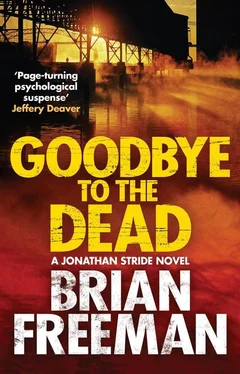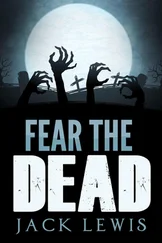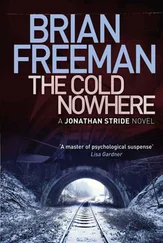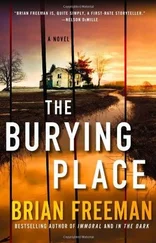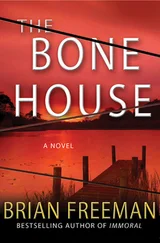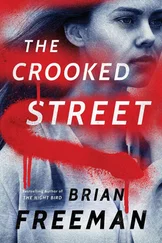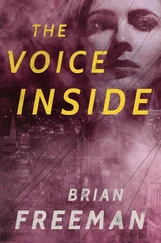By noon, the case was theirs.
Closing statements were done, and for Howard, they were no more than a regurgitation of what he’d already heard. The judge read them instructions on the law and gave them verdict forms. One count of murder in the second degree — guilty or not guilty. There were no more witnesses, no more attorneys, no more exhibits, just the twelve of them together in the jury room. Twelve strangers.
Howard sat nervously at the conference table. The room was no more than a drab meeting space immediately behind the courtroom. Twelve chairs barely fit around the table. There was a leather sofa and a cabinet with a mini-refrigerator, microwave, and coffee maker. An old-fashioned clock ticked off the minutes above the microwave.
He realized they didn’t want the jury getting too comfortable. Do your work, make a decision, and go home.
The black woman who’d sat next to him throughout the trial chose a seat next to him again. Every day, she wore a different pants suit; today it was cream-colored, with lace stitching on the collar. She spoke first. ‘Let’s go around the table and introduce ourselves, okay?’
So they did. Some gave just their names. Some talked about what they did for a living. The woman in the pants suit said that her name was Eleanor and that she worked as a secretary in a small accountant’s office and had three children. She had a calmness about her, friendly but direct. Her dark skin was mottled. Her hair was short and neat.
‘We need to pick a foreman,’ a man at the other end of the table announced when they’d finished introductions. Howard tried to remember the man’s name and thought that it was Bruce. He was the only juror in a tie, and he’d made a point of bragging that he managed a downtown hotel. He was in his sixties, with a gray mustache and a comb-over.
Eleanor said, ‘Well, who among us would be willing to be the foreman? Maybe we should start there.’
Bruce raised his hand immediately. Eleanor stared at the man thoughtfully, and then she raised her hand, too. It was just the two of them. No one else volunteered. Eleanor suggested they each talk about how the foreman could help the group, and when they did, Bruce talked about his management experience, and Eleanor simply said she wanted to respect the process and deliver a fair result.
They passed notepaper around the conference table, and when they’d voted, Eleanor was named foreman by a vote of 10 to 2. Bruce didn’t look happy with the outcome.
‘We have four questions to answer,’ Eleanor reminded them as they began their deliberations. ‘I think we can decide three of them easily enough. Can we take a vote as to whether the state proved that Jay Ferris was dead?’
They did. All agreed.
‘And let’s also vote as to whether the death took place in St. Louis County in the state of Minnesota?’
The same result.
‘Finally — and if any of you disagree, we can postpone this question — can we vote that whoever killed Jay Ferris did so with an intent to murder him? My own opinion is that if you point a gun at someone’s head and pull the trigger, your intent is pretty clear. But that’s just me.’
They voted, and they agreed that intent had been established.
‘That’s progress,’ Eleanor announced with a smile. ‘That leaves us with one question, and it’s the big one. We have to decide whether the state proved beyond a reasonable doubt that Janine Snow caused the death of Jay Ferris. I think it’s important that we review all the evidence carefully regardless of what any of us is thinking at this particular moment. Right? But I also think it would be useful for each of us to share our preliminary opinion, recognizing that our opinion might change as we look at the facts. Okay?’
Howard felt his body tense. Sweat gathered on his neck. This was the moment he’d anticipated, but he had no idea what to say.
Reasonable doubt. The judge had told them: Reasonable doubt is just what it sounds like. It’s doubt based in reason and common sense. The state does not have to prove its case beyond all doubt. Some doubt always exists about most things in life.
‘Let’s go around the room,’ Eleanor said.
Answer yes or no, she told them. Answer yes if you think the state proved its case. Yes if you’re ready to declare Janine Snow guilty of murder.
The juror on the other side of Eleanor answered first. ‘Yes.’
And another. ‘Yes.’
One juror declined to answer. So did the next. And then:
‘Yes.’
‘Yes.’
Howard stared at their faces. They made it look so easy. They’d sat in the same courtroom as him, and the case was already clear in their minds. They’d looked into Janine’s face and seen a killer there.
‘Yes.’
‘Yes.’
Don’t be influenced by emotion or passion , the judge had said. The only thing you should look at are the facts of the case.
‘Yes.’
‘Yes.’
The vote around the table reached Howard. There hadn’t been a single person to vote no. Not a single person with doubt. Only two jurors had declined to vote openly, and the rest had made up their minds.
Guilty.
‘I–I’m not sure,’ Howard said. ‘I guess I have to say no.’
There was silence in the room. Howard felt their eyes on him, and his skin burned with embarrassment. Did they know? Did they know how he felt about Janine? Don’t be influenced by emotion or passion.
‘Fine,’ Eleanor said. ‘My own vote is yes. Howard, could you tell us about the doubts you have? That may help us think through the evidence.’
Howard tried to organize his thoughts. Yes, he had doubt. Was it reasonable doubt? He didn’t know. Part of him wanted to believe there was no way that Janine could have pulled the trigger. Part of him wanted to rescue her. Another part of him, the cold part, heard Carol’s voice from months earlier. She did it.
‘They didn’t prove that Janine fired a gun,’ Howard pointed out. ‘Or that she even had a gun.’
The hotel manager Bruce said acidly: ‘Janine?’
Howard flushed. ‘The defendant.’
‘I think we should call her Dr. Snow,’ Eleanor suggested. ‘She’s the defendant, but she’s also a human being, and we’re deciding how she’s going to spend the rest of her life. Let’s not forget that.’
‘They couldn’t prove Dr. Snow fired a gun because she took a shower,’ Bruce retorted. ‘How convenient is that? She just happened to be doing the one thing that would erase evidence of her firing a gun.’
Several jurors grumbled their agreement.
Another woman spoke up. ‘Plus, we saw a photograph of her firing a gun. For me, that’s a big thing. You’re either a gun person, or you’re not. I wouldn’t have a clue how to fire a gun. Dr. Snow knew.’
‘Nathan Skinner also testified that Dr. Snow asked him how to get a gun,’ Bruce pointed out. ‘On the QT.’
‘That’s true, but do we believe Nathan Skinner?’ Eleanor asked. ‘He’s an important witness, but I’m not sure I find him credible.’
‘Maybe Skinner killed Ferris,’ Howard suggested. ‘Maybe he’s trying to frame Dr. Snow.’
Bruce shook his head. ‘That’s crazy.’
‘Why?’ Howard asked. ‘Skinner has no alibi for the time of the murder.’
‘We saw phone records,’ Bruce replied. ‘From early December to January 28, Skinner didn’t call Snow. He didn’t call Ferris. They didn’t call him. There was no contact at all. So all of a sudden, seven weeks after she breaks off the affair, Skinner goes over there with a gun? I don’t think so. Plus, we heard testimony from the pizza girl who said Ferris was in his apartment the night of the murder, sick as a dog, watching a hockey game. The game started at 9:00 p.m. What do you think? Before the third period, he suddenly got it in his head to drive to Ferris’s place and shoot him? Sorry, I don’t buy it.’
Читать дальше
